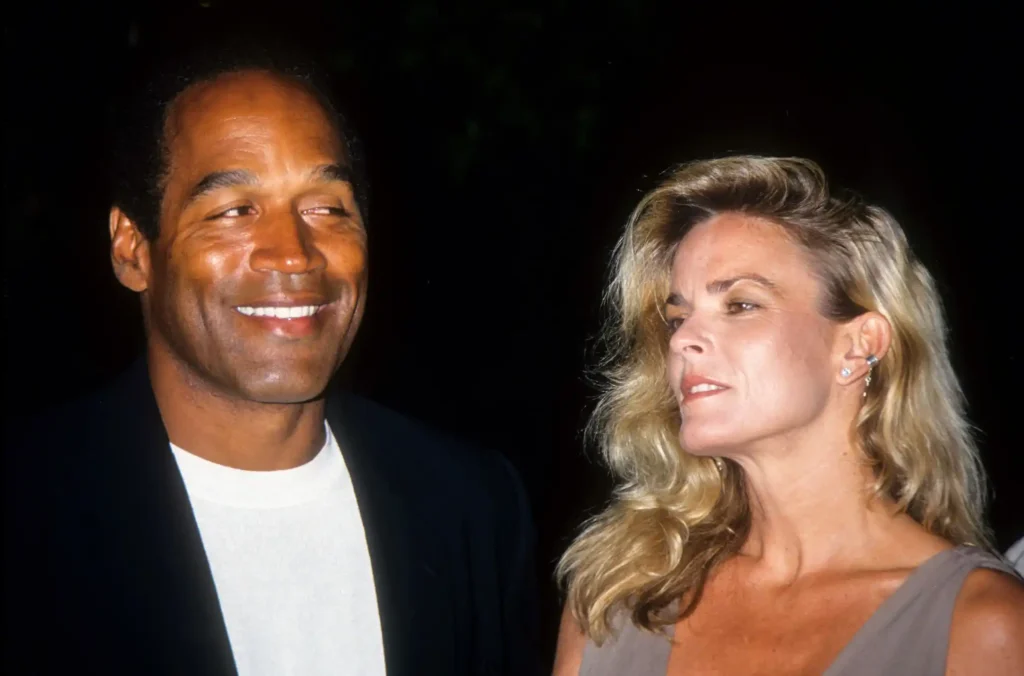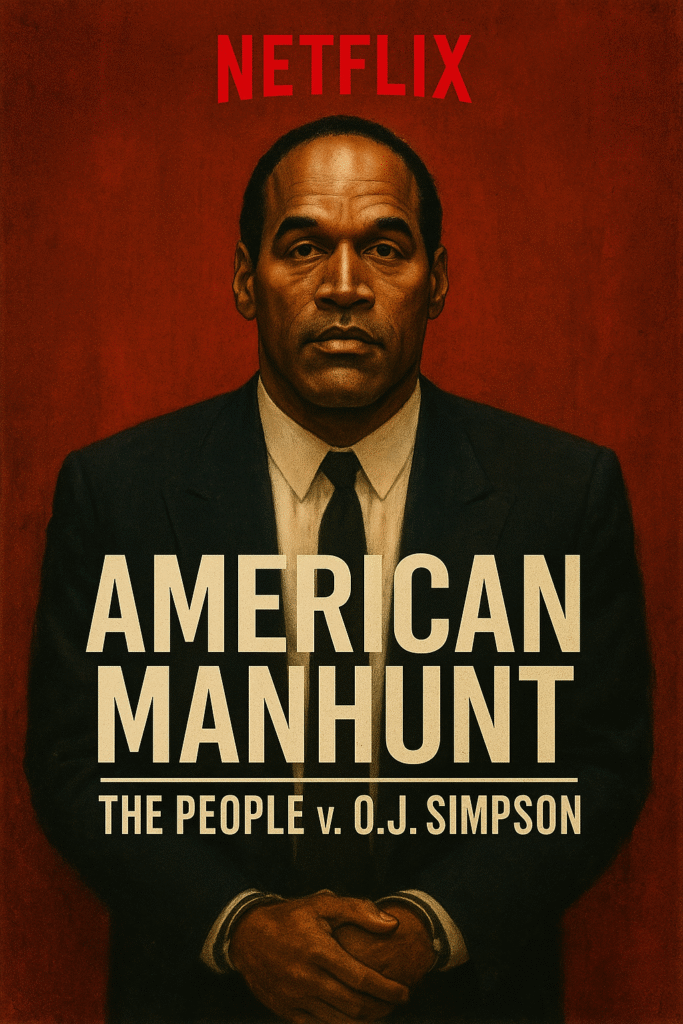In 1994, the United States witnessed a legal drama that blurred the lines between celebrity, justice, and media frenzy. Orenthal James “O.J.” Simpson, a former NFL superstar and actor, stood accused of the brutal murders of his ex-wife, Nicole Brown Simpson, and her friend, Ronald Goldman. The ensuing trial captivated the nation, revealing deep-seated issues of race, domestic violence, and the influence of fame on the justice system.

The Night of the Murders: June 12, 1994
On the night of June 12, 1994, Nicole Brown Simpson and Ronald Goldman were found stabbed to death outside Nicole’s Los Angeles home. Evidence at the scene, including a bloody glove, footprints, and drops of blood, pointed toward O.J. Simpson. The attack was so brutal that Nicole’s throat was slit with such force it nearly decapitated her.
Nicole had recently divorced Simpson, citing years of abuse and threats. That night, Goldman had come to return a pair of glasses left at the restaurant where he worked. Their presence together proved fatal.
The Infamous Bronco Chase: June 17, 1994
Five days after the murder, police issued an arrest warrant for Simpson. But rather than turning himself in, he fled in a white Ford Bronco driven by his friend, Al Cowlings. What followed was a surreal, low-speed car chase that unfolded live on television across America. More than 95 million people tuned in, watching in disbelief as one of the most famous athletes in the country was on the run.
Simpson sat in the backseat, reportedly holding a gun to his head. The chase ended at his Brentwood home, where he finally surrendered.
The Criminal Trial: “Trial of the Century”

Prosecution’s Case
Prosecutors Marcia Clark and Christopher Darden presented a mountain of forensic evidence: Simpson’s blood was found at the crime scene, and Nicole and Goldman’s blood was found in Simpson’s car and home. The glove found at the crime scene matched one found at his residence. DNA testing, then a relatively new tool, showed with overwhelming probability that the blood evidence linked Simpson to the crime.
Defense Strategy: The Dream Team
Simpson assembled a legal team dubbed the “Dream Team,” featuring high-profile attorneys like Johnnie Cochran, Robert Shapiro, F. Lee Bailey, Alan Dershowitz, and a young Robert Kardashian. The defense attacked the credibility of LAPD detective Mark Fuhrman, accusing him of planting evidence and harboring racist views.
Their most iconic moment came when Simpson tried on the gloves in court and they appeared not to fit. Cochran seized the moment, famously declaring, “If it doesn’t fit, you must acquit.”
The Verdict
After more than eight months of testimony and only four hours of deliberation, the jury returned with a not-guilty verdict on October 3, 1995. The decision stunned the nation. While many Black Americans viewed it as justice in a racially biased system, many white Americans saw it as a miscarriage of justice.
The trial exposed America’s racial fault lines in a raw and unprecedented way.
The Civil Trial: A Different Outcome
In 1997, the families of Nicole and Ron filed a civil lawsuit against Simpson. This time, the jury found him liable for the wrongful deaths and awarded $33.5 million in damages. While the criminal trial required proof beyond a reasonable doubt, the civil trial required only a preponderance of evidence.
The families expressed relief, even though collecting the awarded damages proved challenging. The civil case restored, to some extent, a sense of justice.
Life After the Trial: A Downward Spiral
Post-trial, Simpson’s life continued to spiral. In 2007, he was arrested for a botched robbery attempt in Las Vegas, where he tried to recover memorabilia he claimed was stolen. He was convicted in 2008 and sentenced to 33 years in prison, though he was released on parole in 2017 after serving nine years.
Simpson remained a polarizing figure. He joined Twitter, posted videos addressing everything from sports to the trial, and occasionally made appearances. His every move was still followed by the media.
On April 10, 2024, O.J. Simpson died of prostate cancer at the age of 76 in Las Vegas. His death reopened wounds and reignited debates.
Media and Cultural Impact
The trial redefined courtroom journalism. It was one of the first to be broadcast gavel-to-gavel on live TV, giving birth to around-the-clock news cycles. Court TV gained prominence, and legal analysts became household names.
The case inspired countless documentaries, books, and fictional portrayals. FX’s “The People v. O.J. Simpson: American Crime Story” won multiple awards and offered a dramatized yet insightful perspective. ESPN’s “O.J.: Made in America” won an Oscar.
It also became a reference point in discussions of domestic violence and systemic racism.
Recent Developments: 2024–2025

In early 2025, Netflix released “American Manhunt: O.J. Simpson,” a four-part docuseries revisiting the case. It revealed new interviews with former jurors, police officers, and journalists, and examined the long-lasting scars left by the trial.
Legal analysts reflected on how the case impacted criminal defense strategies and the rise of media trials. Many believe the Simpson case laid the foundation for how modern high-profile cases are tried in the court of public opinion.
Public reaction to his death ranged from sympathy to anger. Hashtags like #OJSimpson and #JusticeForNicole trended for days.
Public Opinion: A Polarized Nation
To this day, the public remains divided. Polls from 2024 revealed that 55% of Americans believe Simpson was guilty, while 30% still support the original verdict. Opinions often align with generational and racial perspectives.
Many see the trial as a cautionary tale about the dangers of celebrity influence over justice. Others argue it exposed how deeply embedded racial bias is within law enforcement and the legal system.
Conclusion: The Legacy of O.J. Simpson
The O.J. Simpson case wasn’t just a murder trial — it was a national spectacle. It exposed the underbelly of fame, the limitations of forensic science, and the ever-present role of race in America’s institutions.
Decades later, it remains one of the most studied, debated, and dramatized cases in history. Whether seen as a tragedy, a farce, or a reckoning, the case of O.J. Simpson changed America forever.


Почему важно проводить тест-драйв спецтехники перед покупкой — истории из жизни
https://t.me/s/kupit_gruzoviki/166
Канал с обзорами и сравнениями грузовой техники для выбора и покупки.
Публикуем новости, технические характеристики, рыночную аналитику, советы по выбору для бизнеса.
У нас всегда актуальные цены и тренды рынка СНГ! Подпишись:
https://t.me/s/kupit_gruzoviki/1492
оф. канал: рейтинг ТОП-3 live казино + секретные зеркала. разбираем тактики для блэкджека, рулетки и кэш о краш. промокоды с бездепом 30$. регистрация > игра > вывод за 5 минут!
https://t.me/s/iGaming_live/3470